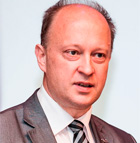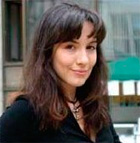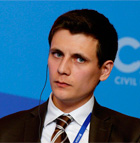Interview
RIAC Director General Andrei Kortunov and experts Victoria Panova (MGIMO University) and Mark Rakhmangulov (HSE) comment on the results of the G20 Summit held in St. Petersburg and Russia’s Presidency in the Group of Twenty
Interview
Andrei Kortunov (RIAC Director General), Victoria Panova (MGIMO University) and Mark Rakhmangulov (Higher School of Economics) comment on Twenty Summit and the 2013 G20 Presidency of Russia.
Andrei Kortunov, RIAC Director General
Well, obviously, as in other cases with international organizations, we should distinguish between the political effects at two different levels, namely the general political level and the applied one. At the general political level, hosting the leaders of major world economies and holding an event of this magnitude certainly promotes a country’s prestige and creates opportunities for bilateral contacts, negotiations and consultations on the sidelines of the main meeting. And Russia, of course, has taken advantage of these opportunities. However, I must admit that the Syrian issue was, in a sense, a fly in the ointment, since the G20 was split, almost down the middle, on the Syrian problem: with almost half the members supporting Russia’s position, or were close enough to it; while the other half backed a military strike against Syria. But in general, the summit can, of course, be considered a foreign policy success especially since the meeting was held at a high level and was well organized. I believe that the participants will remember it positively.
As for the second level, implying specific documents signed, Russia evidently tried to promote its interests in regard to the development program and management of the global economy and international finance. But it is important to note that, on many issues under discussion, Russia is not one of the leaders. Our role in the global financial system and the global economy is quite modest. However, we could say that we also managed to achieve certain positive results at this level, corresponding to our national interests. It should be understood that, in contrast, say, to the G8, which focuses on discussing mainly political problems and where Russia has a very significant voice, within the G20 our role is somewhat more modest. Since the G20 is a forum that has a wider range of participating countries, there is less unity and the agreements reached are of a more general nature. Russia did everything that could be done not only in the course of the meeting, but also during preparations for it. In my opinion, this year was a success. In any case, the core of Russian interests has been promoted and protected in the best possible mode.
Victoria Panova, Associate Professor at MGIMO University Department of International Relations and Foreign Policy of Russia
In general, the G20 Summit and the past year of Russia’s Presidency of the G20 can be considered quite successful. Almost all participants of preparatory talks noted the team’s competence and desire to work with other partners. As a result, the majority of goals were attained, except those that were obviously unrealistic (such as the completion of reforms to the IMF); agreement was reached on the whole spectrum of priority problems, as specified by the presiding country. This ranges from issues of fiscal consolidation (which, however, was more like an “agreement to disagree” and the consensus reached was on having the right to choose one’s own path); tax base erosion (in particular, regarding the OECD plan and toughening of regulation regarding big multinational companies); development problems; business environment and “long money”; as well as international trade and resisting protectionism.
Although there were no game-changing decisions or sensations, this testifies rather in favor of the Summit, since progress was made on a number of matters at hand, providing real interaction among 20 participants and offering a platform for strengthening international monetary, financial and economic systems. The abundance of media reports about the Syrian problem and the intrigue around a possible meeting between the Russian and American presidents (intensified by both leaders’ statements) could create the impression that all the hard work on the G20’s preliminary agenda was in vain, but in reality this was not the case. Although the Syrian issue dominated the information field, all the items on the agenda developed during the year were included in the final documents.
Mark Rakhmangulov, Deputy Director of the Center for Global Governance, Institute of International Organizations and International Cooperation, HSE National Research University
Russia’s first G20 Presidency allowed the country not only to demonstrate its ability to lead the premier forum for international economic cooperation between the world’s leading powers, but also to put our priorities firmly on the agenda of this institution and achieve clear positive results. Despite the fact that the crisis in Syria drew the Summit participants’ attention, the main documents developed during the year in which Russia held the Presidency were discussed and adopted by the leaders. As for Syria, even though participants’ positions on the issue diverged, a constructive discussion was made possible, in part by inviting G20 foreign ministers to Strelna.
However, during its Presidency, Russia couldn’t quite attain its goal of “returning to the origins,” i.e. by focusing on economics and finance – at the start of its Presidency, Russia set out an ambitious agenda, which was later extended. Certain goals set for the Presidency have not been achieved – chiefly, completing the IMF reforms and adopting a new multi-year development plan (it should be acknowledged that this largely depended on the G20 partners’ positions).
Russia succeeded in involving a wide range of outreach groups in G20 work – the final documents reflect recommendations made by representatives of civil society, business and academia as well as other interested parties. An unprecedentedly large number of leaders at the G20 Summit met with Business 20 representatives.
The G20 Year in Russia does not end there – in October there will be meetings as part of the financial track, as well as meetings of sherpas and working groups. One can expect to see work in some areas completed before the baton is passed to Australia, which may adopt many approaches set in place during our Presidency.
The sequence of Russia’s Presidencies of the G20, G8 and BRICS in 2013-2015 provides a unique opportunity for the country to advance its priorities at the global level. The G20 can be considered a good start of the marathon, but it is important not to lose momentum, and to continue to work actively in the coming years. The expert community can and should play an important role here.






